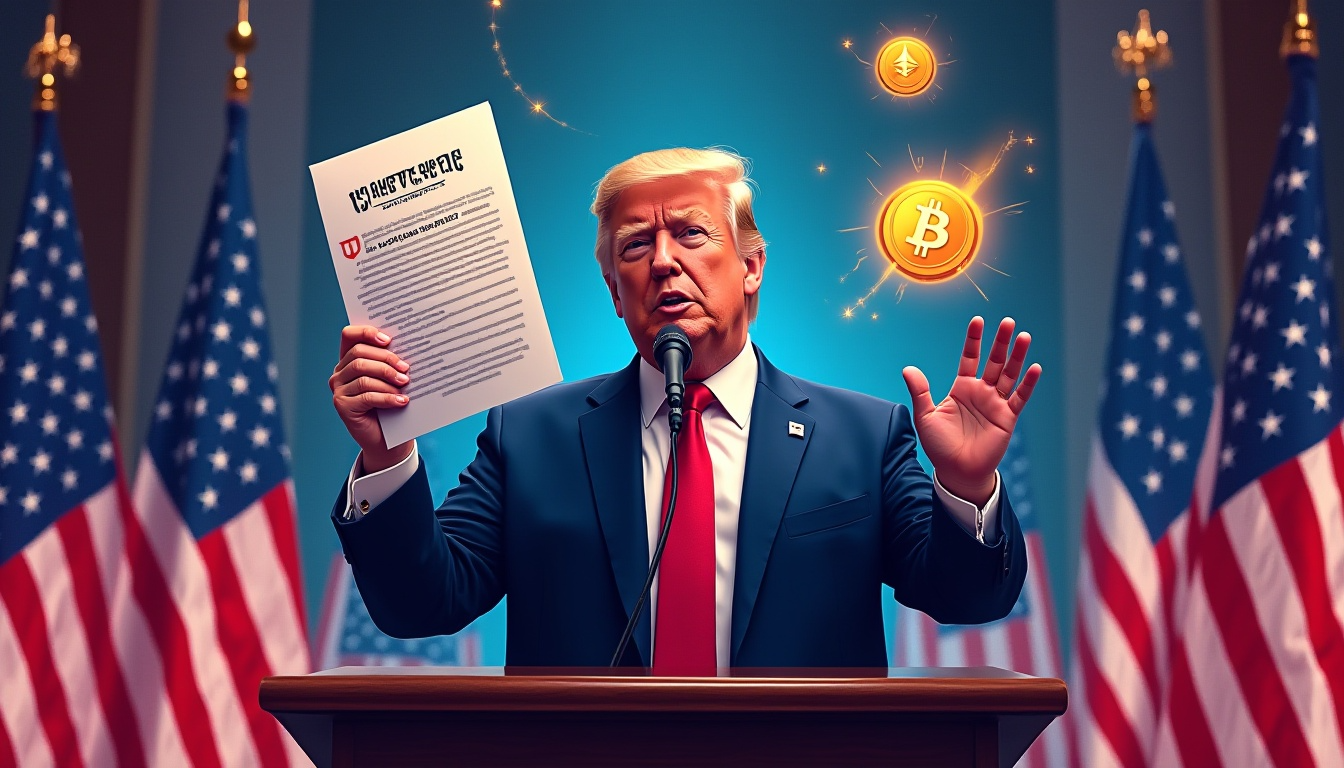Trump’s executive order may allow Bitcoin and crypto in 401(k) plans, signaling a major shift in U.S. retirement policy.
U.S. President Donald Trump is preparing to sign an executive order that will allow crypto and other alternative assets in 401(k) retirement accounts. The ruling is a historic turning point in the U.S. retirement policy and may open the gates of crypto adoption in mainstream finance.
Bitcoin and Ethereum May Soon Enter Retirement Portfolios
According to Bloomberg, the executive order, which is to be signed today, instructs the Department of Labor to alter its guidance under the Employee Retirement Income Security Act of 1974 (ERISA). This reform will reevaluate the existing limitations that limit the 401(k) accounts to conventional assets like stocks and bonds. In addition, the Labor Department will collaborate with the Treasury and the Securities and Exchange Commission (SEC) to consider the regulatory changes that can be made to include digital assets.
To date, assets such as Bitcoin, Ethereum, and private equity have not been included in retirement portfolios because of volatility and fiduciary risk. Nonetheless, the new policy will increase investment opportunities among the millions of Americans. It will also enable funds to cover real estate, gold, infrastructure, and private loans.
The action is in line with Trump’s general aim to make the United States a global epicenter of crypto innovation. Analysts believe that opening up access to the $12 trillion 401(k) market to just 2 percent could bring inflows of over $170 billion in cryptocurrencies. This would overshadow existing inflows and may send prices of digital assets up.
Already, some large financial organizations are preparing. In April 2025, Fidelity introduced a crypto retirement product. Other companies such as BlackRock, Vanguard, and Apollo have shown interest in providing such services. Such providers can now accelerate the pace of the creation of crypto-based services.
The policy change comes after the Biden-era Labor guidance, which cautioned against the volatility of crypto, was repealed. And now that Trump is on board, perhaps alternative assets will come into the mainstream retirement planning. According to its advocates, the choice provides a greater diversification of the portfolio and better returns.
Related Reading: SharpLink, Trump Media, Jetking Pour Billions into Bitcoin and Ether
Critics Warn of Crypto Volatility in Retirement Plans
Jason Fichtner, Executive Director of the Retirement Income Institute, called the move “a long-overdue expansion of investor choice.” He continued saying that more exposure to cryptocurrencies can make Americans wealthier in the long term.
But critics are suspicious of the dangers involved. Cryptocurrencies are characterized by severe movements in their prices. The example of a cryptocurrency like Bitcoin is that after the news about the executive order became public, the cryptocurrency skyrocketed to over $120,000. Matt Schulz of LendingTree warned that such risks may not correspond to the needs of elderly employees who are close to retirement.
Also, personal assets are subject to excessive fees and illiquidity. Such disadvantages may present a concern to the financially illiterate. The Gopi Shah Goda of the Brookings Institution emphasized that protecting consumers and educating investors must be well in place.
Political concerns also surround the project. For example, reports claim that top Trump appointees hold crypto portfolios worth $120 million. As a result, some experts have raised concerns. They question whether these officials had personal motives behind the administration’s strong support for crypto. Therefore, these doubts add more controversy to the project’s future.
However, the executive order might be long-term. If implemented, the policy will likely create professionally managed crypto funds instead of letting individuals own coins directly. It will be the mandate of regulatory agencies to establish definitive rules.
The implementation could be radical, even though it may take several months to complete. Over the next few months, millions of Americans may be able to learn about Bitcoin and other digital assets through retirement plans. Not only is this move transformative within itself, it is also an indicator that crypto is no longer a periphery asset but a mainstream financial asset.
